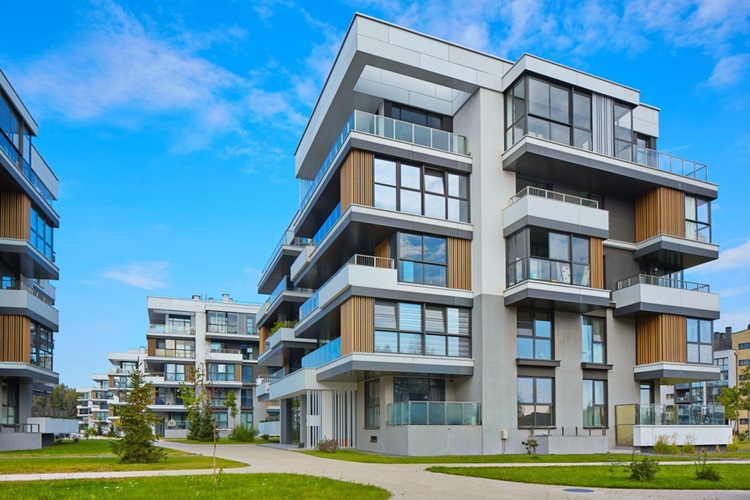What Does Flat Insurance Cover?
What Does Flat Insurance Cover?

Insurance is extremely important to safeguard your property. Often used interchangeably, home insurance, property insurance and flat insurance necessarily mean the same thing. The primary purpose of this is to protect the property against any unforeseen circumstances and risks.
While buying a property, a lot of people want to know if flat insurance is crucial in India. Well, it is. You must understand the requirements of securing the policy so that you can achieve the benefits. A lot of homes in India are still not insured as compared to foreign countries.
What is Flat Insurance?
Flat insurance is a type of home insurance but usually for flats or apartments. It is often referred to as homeowners insurance that protects the home and its various belongings against natural disasters, thefts and other unforeseen circumstances.
Getting insurance for your flat will also act as an additional financial cover for your property. Therefore, if your belongings are lost too, you'd be able to secure them. The term flat insurance is specific to flats or buildings that are situated within a bigger complex.
What is Covered by Flat Insurance?
Whether you're a tenant or the actual owner of the property, getting home insurance for your flat can be beneficial. However, before applying for the insurance, you will have to look into all the components and aspects that will be covered in flat insurance. As for now, these include:
Flat structure: The insurance would cover the flat’s structure, especially the permanent fixtures. Therefore, it covers roofs, walls and floors.
1. Contents in the flat:
Now that you're calling the flat your home, isn't it important that you secure the contents too? Therefore, with your renters insurance, you can secure all the contents of the flat too like appliances, clothing, furniture, and more personal belongings.
2. Third-party Liability:
The third-party liability will also be considered in case of an injury or damage.
3. Accidental damages:
Unforeseen circumstances like natural disasters can happen anytime and leave you stranded. Now, if your property gets damaged due to such a scenario, it can be very risky. Therefore, accidental damages can be covered by flat insurance.
Some of the common scenarios or situations that will be covered by the flat insurance include
1. Burglary
2. Theft
3. Flood
4. Fire
5. Earthquake
6. Natural disasters
Each of these components has a huge role to play in determining the coverage. The inclusions and exclusions of the insurance usually depend on the insurance company. Moreover, the type of policy you choose for safeguarding your property will also have a significant impact on it. Before filing a claim for your flat insurance, you must go through the property documents and read the terms and conditions.
Things to Consider While Applying for Flat Insurance in India
Now that you're aware of the coverages, it is essential that you apply for them properly, too. This is to ensure that there are no problems while applying or even when you're filing a claim.
Some of the key things to consider while applying for a flat insurance in India are as follows:
1. Type of insurance:
In this case, you must understand whether you want to insure the entire house or just the belongings. Since you're getting flat insurance, you should get complete insurance that secures the home and your belongings.
2. Coverages:
Always check the type of inclusions and coverages of the insurance. Some of the renters may apply for comprehensive renters insurance to secure them through this. This is usually done to ensure that the rent of the property is covered when you're not able to pay the rent.
3. Policy Term and Sum Insured:
How long is the policy valid for? Some policies are for a year, whereas some can be extended to more than that. Whatever your preferences are for the duration, you can choose one accordingly. As for the sum insured, do not opt for underinsured as it may lead to shortcomings.
4. Premium:
What is the premium being charged for the insurance? Different policy insurance providers have different premium charges. Therefore, it is advisable that you go through their terms and conditions to understand how much premium will be charged for the specific insurance.
5. Deductibles:
You must understand the terms and conditions of the deductibles. These deductibles refer to the amount that you will have to pay from your pocket before the insurer files the claim. As for the deductibles, the higher amount means lower premiums which can be slightly useful as you pay less.
6. Claim settlement process:
When you're applying for insurance, you must also understand how long it will take for the claim settlement process. For this, you must understand their documentation and the timeline they would take to complete each of them. It is advisable to choose an insurer that provides a faster claim settlement process.
What is the Tenure of Flat Insurance?
The tenure of the insurance you apply for your flat can vary depending on its type and coverage. The good thing is that there's an availability of both long-term and short-term homeowners insurance so that you can make the right choice.
The short-term insurances are within one year, whereas the long-term one extends beyond a year. The tenure of the insurance for your flat, depending on its type, include:
1. Only structure of the building: 1-10 years
2. Only contents of the building: 1-15 years
3. Both structure and contents of the home: 1-10 years
Flat Insurance Limitations
There's no doubt that insurance is going to protect you against a lot of things. However, since you're living in a flat or society, you must know that there are certain limitations you must know of. The insurance company will not provide the insurance to you if you have purposely damaged any contents of your property.
Wear and tear are very common when you're living in a house. However, if it becomes a recurring habit, this becomes a problem. If your house or flat faces regular damage due to the wear and tear problem, the insurance provider is never going to cover it. In fact, if there's any significant deduction, you will have to handle it.
If you're moving into a new house, you must do your research thoroughly. Sometimes, it may so happen that there was pre-existing damage that you didn't know of. Now, if you go ahead and claim for the fixture of these pre-existing damages, you won't be compensated. Therefore, checking your property is very crucial.
Cost of the House Insurance
The home insurance amount that you must pay varies depending on the insurance provider. The providers have specific requirements for amount calculations. They will check the sum insured for the building and the contents. Based on that, they will calculate the premium you'll have to pay per year or per annum. Know that there are different coverage options, such as theft and burglary, which may require additional charges.
Conclusion
The flat that you live in is your home, whether you're a tenant or the owner. Therefore, there's nothing wrong with getting it insured, mainly to avoid any potential damages that may happen to your property. Being a little careful in handling the property can surely be of great help in determining that you're successful in protecting your house. Thus, you'll have peace of mind when everything falls into place.
Disclaimer: The above information is for illustrative purposes only. For more details, please refer to the policy wordings and prospectus before concluding the sales.
RELATED ARTICLES
Housing Society Insurance: A Detailed Guide
Why is building insurance necessary?
Top reasons to get Home Insurance in 2025
Home Insurance vs Home Loan Insurance: What You Need to Know















 Health Insurance
Health Insurance  Travel Insurance
Travel Insurance  Car Insurance
Car Insurance  Cyber Insurance
Cyber Insurance  Critical Illness Insurance
Critical Illness Insurance
 Pet Insurance
Pet Insurance
 Bike/Two Wheeler Insurance
Bike/Two Wheeler Insurance  Home Insurance
Home Insurance  Third Party Vehicle Ins.
Third Party Vehicle Ins.  Tractor Insurance
Tractor Insurance  Goods Carrying Vehicle Ins.
Goods Carrying Vehicle Ins.  Passenger Carrying Vehicle Ins.
Passenger Carrying Vehicle Ins.  Compulsory Personal Accident Insurance
Compulsory Personal Accident Insurance  Travel Insurance
Travel Insurance  Rural
Rural 












